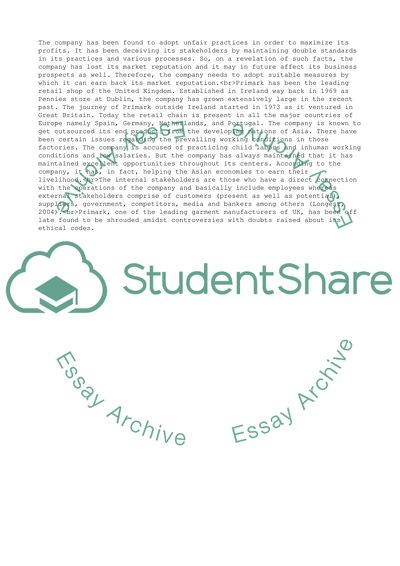Cite this document
(Corporate Social Responsibility: Case of Primark Study, n.d.)
Corporate Social Responsibility: Case of Primark Study. Retrieved from https://studentshare.org/business/1725067-corporate-responsibilty
Corporate Social Responsibility: Case of Primark Study. Retrieved from https://studentshare.org/business/1725067-corporate-responsibilty
(Corporate Social Responsibility: Case of Primark Study)
Corporate Social Responsibility: Case of Primark Study. https://studentshare.org/business/1725067-corporate-responsibilty.
Corporate Social Responsibility: Case of Primark Study. https://studentshare.org/business/1725067-corporate-responsibilty.
“Corporate Social Responsibility: Case of Primark Study”, n.d. https://studentshare.org/business/1725067-corporate-responsibilty.


